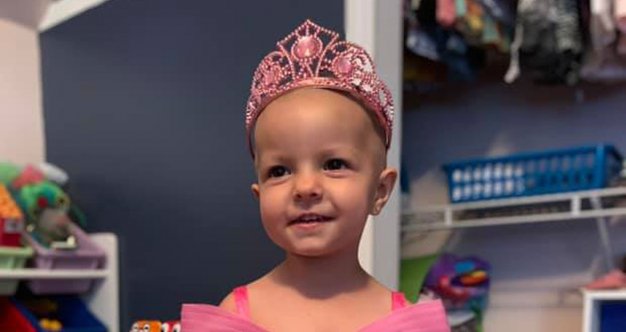Imagine being a parent of a beautiful toddler who kept getting sick and the doctors couldn’t figure out why. Then, finally, you’re told your two-year-old daughter has cancer in her ovaries.
McKenna, who goes by “Kenni,” is from Senoia, Georgia, and she went through four rounds of chemotherapy after she and her family were told she had a rare type of tumor called an ovarian yolk sac tumor, “most often found in children before the ages of 1 to 2,” according to the Cincinnati Children's Hospital, where Kenni was treated.
Read More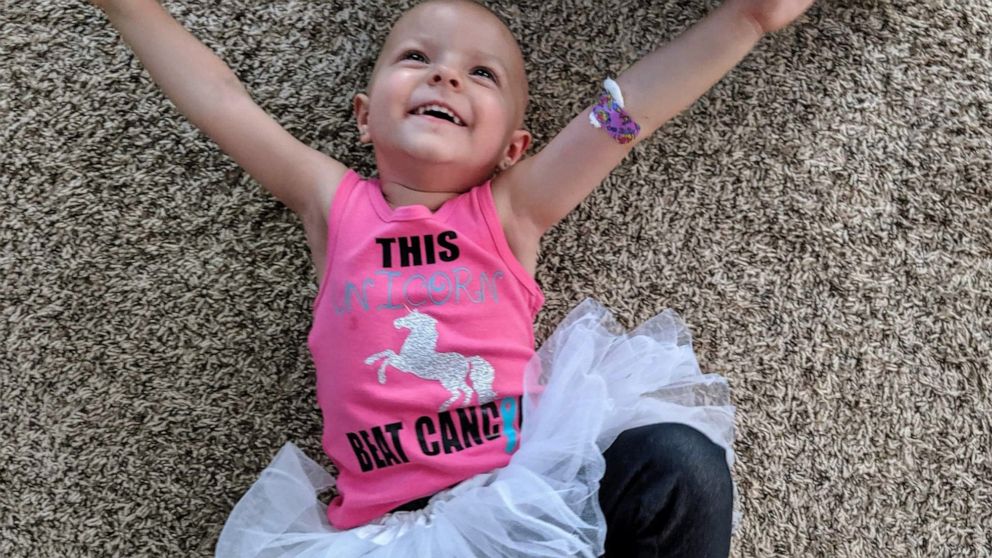
At the very beginning of her journey, Kenni experienced some non-cancer-specific symptoms, so doctors didn’t initially realize she had cancer. "We took her to the doctor. At that point they thought it was gas, so they told us to give her gas drops and let them know if she got any more fevers," said her dad, Mike Xydias, told Good Morning America in a recent interview.
Before she had the chance to get to another doctor, Kenni’s symptoms got worse. “The whole [next] day she was fine, no temperature. But she had difficulty using the bathroom. Meagan made an appointment for her Feb. 14 in the afternoon. That day, daycare called. She had a fever of 103.”
About a month after her daycare sent her home with a fever, Kenni’s stomach became bloated, and she seemed uncomfortable. Her parents took her for an X-Ray. “They said her bowels looked full and it looked like a big gas bubble," said Mike about the scan. After that, an ultrasound revealed a mass located around her ovaries.
Information on childhood ovarian cancer
According to Cincinnati Children's Hospital, the type of tumor McKenna had is “a rare, malignant tumor of cells that line the yolk sac of the embryo” and is very rare.
Ovarian tumors in children are in general very rare, and account for only one percent of all cancers in children between birth and age 17. In girls younger than 8, four out of five ovarian tumors are not cancerous. Ovarian tumors can form in infants, young girls and adolescents on one or both ovaries, and they can appear individually or in clusters.
Treatment varies based on many factors including the type of ovarian tumor and the severity of the condition, and may include surgery, radiation therapy, and/or chemotherapy. In children, ovarian tumors have a much higher cure rate than adult forms of ovarian cancer.
Kenni’s Diagnosis and The Aftermath
Kenni’s parents were effusive about the way she’s handled cancer treatment. "Meagan and I both agree that Kenni is our hero with how she's dealing with this," Mike said in a prior interview with the outlet.
The initial diagnosis was a very difficult time. “Dr. Sutton came in she just got straight to it and said, ‘Scans were clear. There's nothing there,'” Meagan told GMA. “We sat and cried and held each other for a minute.” Dr. Sutton is a pediatric oncologist for the Aflac Cancer and Blood Disorders Center at Children's Healthcare of Atlanta.
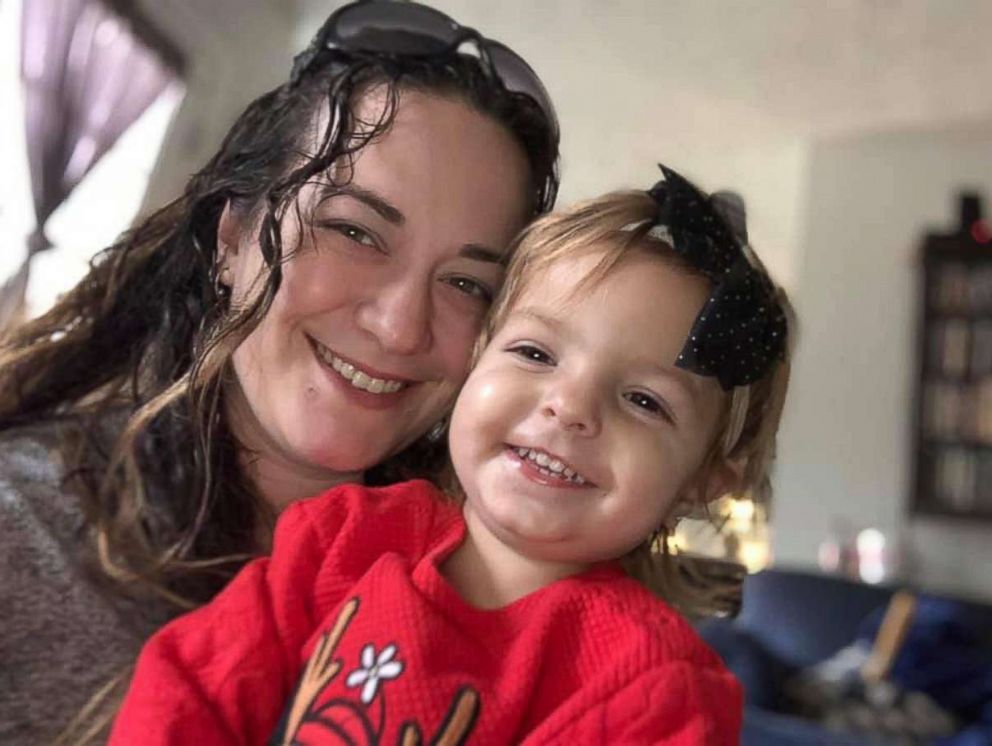
But outside of the diagnosis, there weren’t too many complications. “[She] had no serious or unexpected side effects aside from requiring occasional blood transfusions,” said Dr. Sutton. “She’s a rockstar.”
And now that she’s in remission, Kenni doesn’t let her cancer get in the way of her fun. “She is a ball of energy and a stereotypical 2-year-old. She's the youngest child, where she is the boss and she's extremely stubborn, which a great character trait in going to fight cancer. She doesn't let anything stop her.”
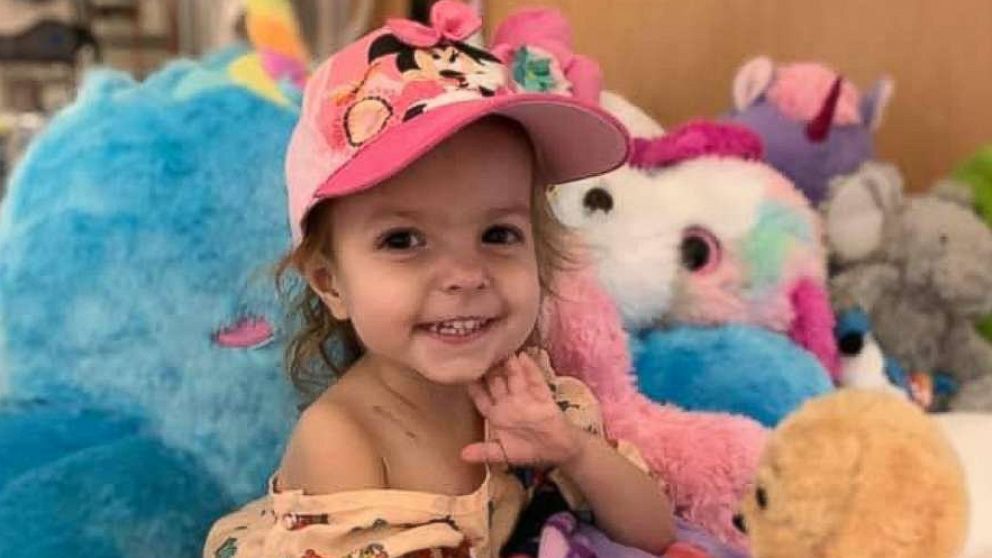
A close friend of the family created a GoFundMe page in February to “help to ease their worries as they will be taking time off for scans and blood work.”
“We can't say ‘thank you’ enough to everyone for all of the love, support, and prayers that our sweet Kenni and family have received over the last four months," said the GoFundMe organizers.
Mike expressed his gratitude for all of the people who helped them through their journey. “People are genuinely good and they want to help.
And said he wanted a way to show them how much it meant to him and his family. “[We want to] pay it forward to everyone who helped us.”
And that’s why Mike and Meagan are sharing their experience and the lessons they’ve learned with the world. “Trust your gut when it comes to your or your child's health, and there's the life aspect of, ‘enjoy every minute,'” said Meagan.
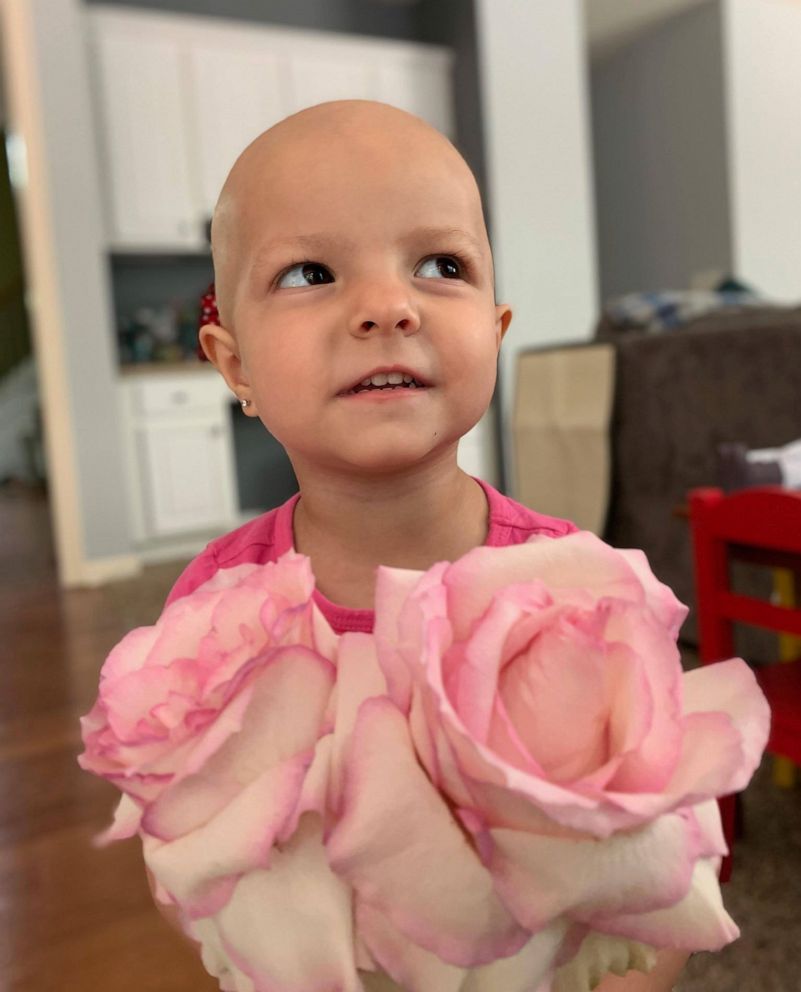
Learn more about SurvivorNet's rigorous medical review process.

